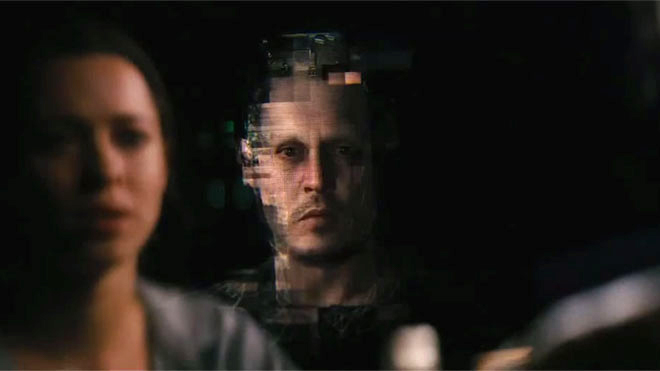Reviews
Movie review: “Transcendence”

Transcendence
dir. Wally Pfister
Release Date: Apr 18, 14
- 1
- 2
- 3
- 4
- 5
- 6
- 7
- 8
- 9
- 10
Transcendence is a film that makes manifest the criticisms often levied against Christopher Nolan movies. His films are frequently accused of being exercises in moody style that say a lot without ultimately saying anything. But even his most egregious missteps (the boat sequence late in The Dark Knight, for instance) are dwarfed handily by this film, a coming-out party for longtime Nolan cinematographer Wally Pfister that doesn’t do a ton of favors for his future directorial prospects. Transcendence is a perfect example of sound and fury signifying nothing, a mélange of high ideas and anxieties that stretch down endless corridors (literal and figurative) but end up nowhere particularly interesting.
More than anything, Transcendence is a throwback of sorts to the prominent technophobia thrillers (genre denoted, rather than quality of film) of the Cold War and later of the late ‘90s. To its detriment, it’s also just as silly after a while as some of the latter. Think back to Hackers and other films of its ilk, films that loved using scrolling lines of code to portray everything from existential angst to scene transitions. The story of Will Caster (Johnny Depp), a rockstar scientist whose mind is uploaded to a computer mainframe after a “neo-Luddite” splinter group successfully pulls off a slow-burning assassination attempt, is less one interested in contemplating the ethics of how human a computer can possibly be (even as it teases this concept as a hook early on) and more a melodrama about a couple’s relationship being fractured by the issue of one of them being a computer.
Transcendence was already done no favors by Her, a film which addressed similar subject matter without at any point asking its characters to have long conversations about the film’s themes aloud. This is made doubly awkward by the caliber of cast Pfister assembled for his debut feature. A film starring Rebecca Hall, Paul Bettany, Morgan Freeman, Kate Mara, Cillian Murphy, and Clifton Collins Jr. shouldn’t be so staid, and yet there’s rarely a moment in Transcendence where you won’t find yourself waiting for the film to finally pick up. Sadly, it never really does. This is in part due to the one member of the cast I purposely omitted a moment ago, Depp, whose performance could genuinely be called embarrassing. He delivers Caster’s lines with a flat affect that at first appears to be a deliberate choice to convey the mind of a genius with poor socials skills, but it ends up coming off like an unexpected Tommy Wiseau tribute, especially when he has to establish some kind of meaningful emotional anchor with Hall.
For all its outmoded silliness and an opening that sucks most of the dramatic tension out of the film before it even reaches the five-minute mark, Transcendence has some pretty good ideas that it should have explored further. Though the idea of a manufactured consciousness has been touched on pretty regularly in the past, the film goes a step further into the territory of what would happen if an artificial intelligence was no longer artificial, and could start reaching beyond the boundaries of things controllable by technology and into the human world. The film conveys this with some pretty engaging CGI, in a handful of action sequences that don’t do much to advance the film but at least get across the idea that Caster’s delusions of grandeur might well be morphing into full-blown omnipotence as his virtual self gains strength.
However, the film undercuts most of its best ideas with the twin terrors of overexplanation and a lack of cogent logic that becomes increasingly distracting by the minute. In order to get to the whole “Johnny Depp’s a computer with LIMITLESS POWER” part of the proceedings, Pfister’s film rushes through anything that might be used to create meaningful human connections between any of its characters, odd given the film’s overwhelming bias in favor of human nature as superior to the ruthlessness of digital efficiency. No character feels like anything more than a cutout performing necessary beats to get the inevitable failure of communication between Caster and his suffering wife. By the time the film wraps up with a pretty shameful ending that throws its hands up in the air and just gives humanity a big hug, its lapses in reason have piled up to a point where most will be hard-pressed to care any longer. For a film brash enough to rename the long-running singularity theory of robotics for its own ends, Transcendence doesn’t even really do much with that.